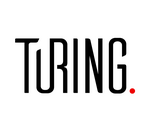In a stunning development for the AI hardware sector, Silicon Valley-based startup Groq has raised $750 million in a recent funding round, surpassing earlier expectations and achieving a valuation of $6.9 billion.
This milestone, reported by TechCrunch on September 17, 2025, positions Groq as a formidable challenger to Nvidia, the long-standing giant in the AI chip market.
Groq's Rapid Rise in the AI Chip Race
Founded in 2016 by former Google engineers, Groq has quickly gained traction with its innovative Language Processing Unit (LPU), designed to accelerate AI inference workloads.
The company's focus on high-speed, low-cost AI processing has attracted significant investor interest, with this latest round led by Disruptive and supported by major players like BlackRock and Samsung.
Historical Context: From Underdog to Powerhouse
Just over a year ago, Groq was valued at $2.8 billion after a $640 million raise in August 2024, illustrating an extraordinary doubling of its valuation in a short span.
This rapid growth reflects the escalating demand for alternatives to Nvidia, which currently holds over 80% of the AI chip market, as companies seek diverse solutions for AI infrastructure.
Impact on the AI Industry Landscape
Groq's success signals a potential shift in the industry, as investors and tech firms bet on new players to disrupt Nvidia's near-monopoly in AI hardware.
The influx of capital will likely enable Groq to scale its data center presence, particularly in high-demand regions like Asia, further intensifying competition.
Future Prospects and Challenges Ahead
Looking ahead, Groq aims to capitalize on the exploding need for AI compute power, especially for applications like large language models and predictive analytics.
However, challenges remain, including recent reports of a slashed 2025 revenue forecast from $2 billion to $500 million, which could impact investor confidence if not addressed.
Despite these hurdles, Groq's focus on US AI hardware sovereignty may position it favorably amid geopolitical tensions and supply chain concerns.
As the AI inference wars heat up, Groq's trajectory will be a critical storyline to watch in 2026 and beyond.


 Maria Lourdes
Maria Lourdes




